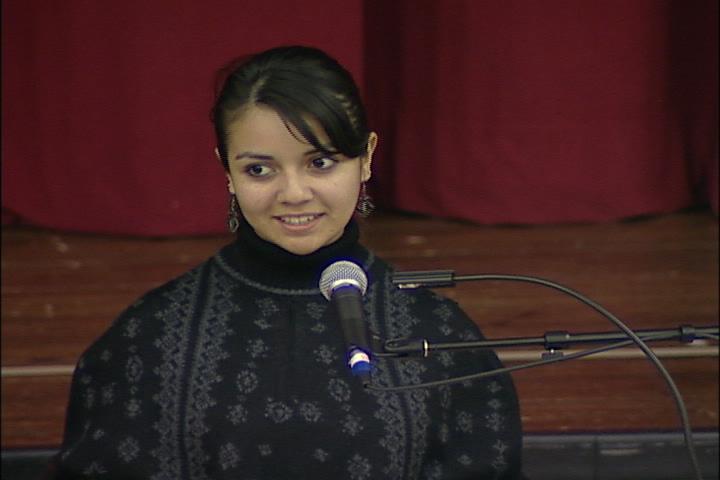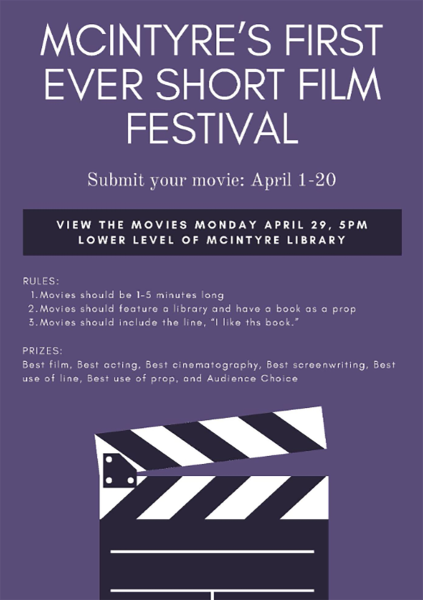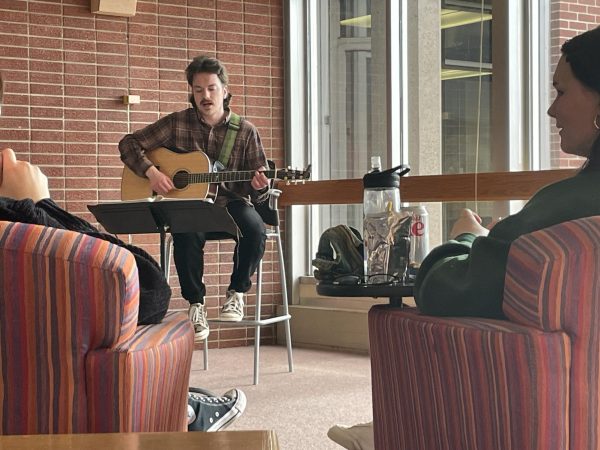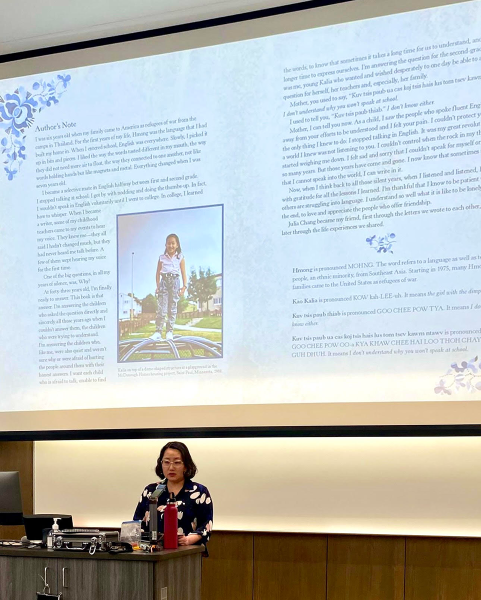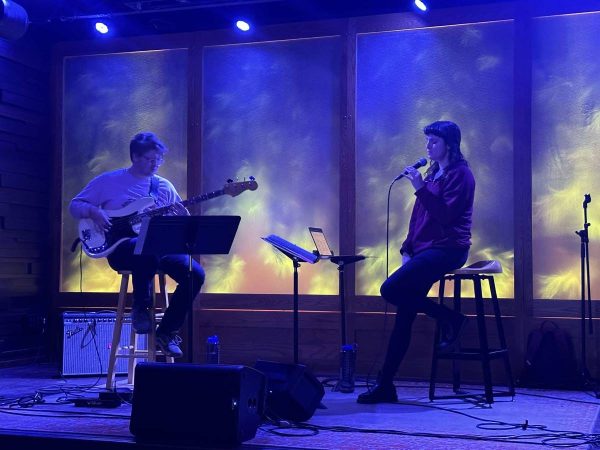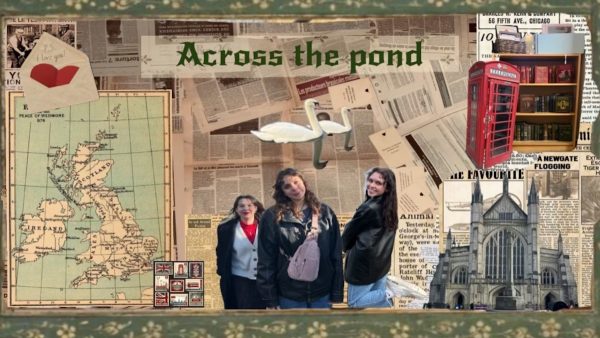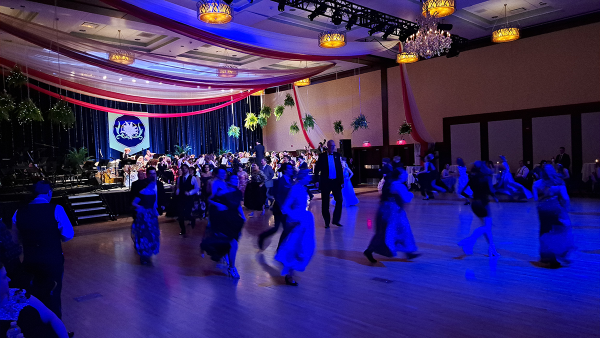Annual poetry reading highlights authors and poems in over 30 different languages
Languages across the globe will be represented through various poetry recitations at the International Poetry Reading
Photo by SUBMITTED
Claudia Lozano Aguirre reading in Spanish, “To Love,” by Maria Josefa Mujia.
April 15, 2015
On April 22 community members, professors, administrators and students will perform international poetry pieces in the Ojibwe Grand Ballroom of Davies Center.
Married couple and co-organizers of the event Audrey Fessler, associate professor of English and women’s studies, and Jeff Vahlbusch, associate professor of languages and university honors program director, wanted to give the community what they describe as a “magical” performance and event.
After attending their first international poetry event at Washington College, they knew they wanted to bring the event to UW-Eau Claire.
“We thought we wanted to give back, creating an event like this and giving it to the community might be a good thing for us to do,” Fessler said.
With their two separate fields, they felt it is a blend that creates their love for international poetry, represented by various languages.
Vahlbusch compared the event to attending a concert.
“It’s like going to a concert where the music is language, is poetry,” he said.
30 languages were offered for the first program in Davies Center in 2007. They were shocked when many more people had attended then they had expected.
It was then they realized this was soon to become a tradition moving forward after witnessing such success. This will be the second year the event is streamed online for those who can’t make it for the live appearance.
“It was embraced and animated by the communities delight in language and willingness to share in a variety of languages that the rest is history, and the momentum has carried us forward,” Fessler said.
Languages vary from Finnish, Urdu, Hungarian, Taiwanese and many more. The list is extensive and also includes Morse code and American Sign Language. Poetry may be read, chanted or sung. For audience members, there is no language requirement to attend.
“Within the space of two hours you’re taking an amazing tour of the globe, hearing things you’ve never heard before, getting some insights into culture and aesthetics, and into meaning and into the things that tie us human beings together,” Vahlbusch said. “It’s a chance to celebrate diversity and to celebrate Eau Claire’s profound commitment to international studies.”
Audience members can choose to simply listen to the presentation or to follow the original language and then refer to the English translations. A booklet is provided before the event containing each original poem with its translation.
With most of the presenters being international students, Vahlbusch said how important this event can be for them to contribute.
“It’s a chance to bring that incredibly important part of themselves to this community and to have a moment where they can give back something essential of themselves,” he said.
Emily Spence, sophomore English major, is the president of English Festival. This group helps organize events for English majors and minors as well as community members, including the yearly International Poetry Reading.
Spence helps to find poetry readers with assorted languages. After attending last year’s poetry reading, she enjoyed the range of languages heard.
“It’s a really good way to display all of the sheer amount of diversity we have here in our community,” she said. “We have a lot of different people and I think it is a good chance for them to get some representation and appreciation for all that they share with us.”
Sophomore political science major Carlos Diaz performed at last year’s poem reading. He recited in Palestinian Arabic, Italian and Portuguese.
“Since languages and culture are a large part of my passion, it feels incredible to be able to recite a poem in the native language and share not only the contents of the poem but also the beauty of a language,” he said.
Diaz enjoys being a part of the event and recommends students to attend.
“The event is also a great way for people interested in networking with students who may be native speakers or may be studying the language here at the university,” he said.

